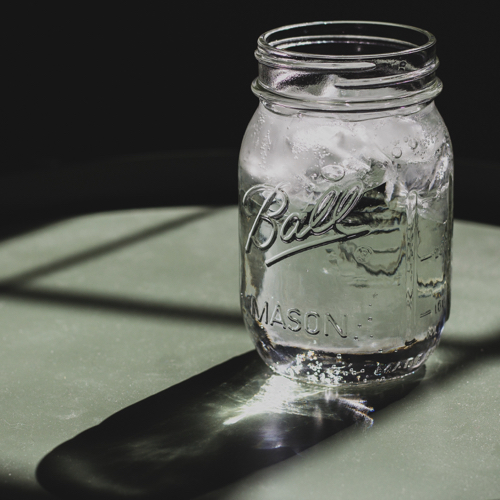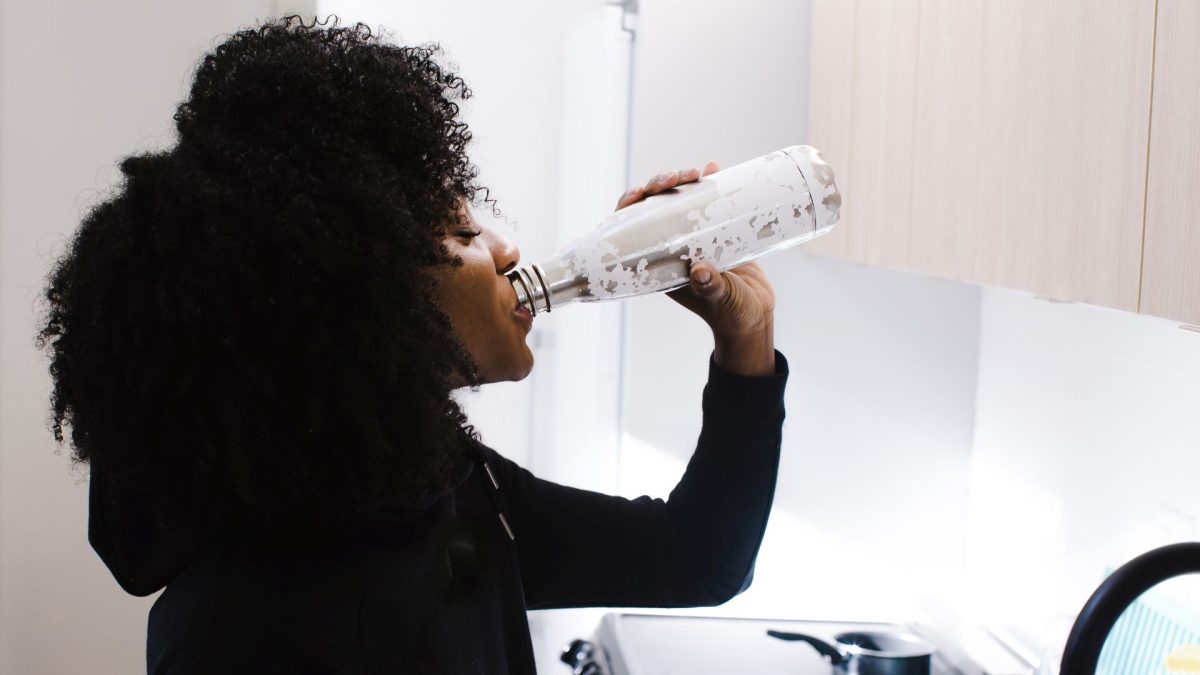
Water
The Beverage Guidance Panel, which included such heavyweights as Dr. Walter Willett, nutrition department chair at Harvard University School of Public Health, ranked beverage categories from best to worst. Soda ranked last, and whole milk was grouped with beer, with a recommendation for zero ounces a day. Tea and coffee—preferably without creamer or sweetener—tied as the number-two healthiest beverages, second only to water, the top-ranked drink.
Not drinking enough water appears to be associated with such problems as falls and fractures, heat stroke, heart disease, lung disorders, kidney disease, kidney stones, bladder and colon cancers, urinary tract infections, cavities, decreased immune function, and cataract formation.
A Harvard University study of nearly 48,000 men found that bladder cancer risk decreased by 7 percent for every extra daily cup of fluid consumed, and a high intake of water—say, eight cups daily—may reduce risk by about 50 percent, potentially saving thousands of lives.
The original Adventist Health Study, involving 20,000 men and women, found that those who drank five or more glasses of water daily had about half the risk of dying from heart disease compared to those who drank two glasses or less. About half the cohort consisted of vegetarians, so they were getting extra water by eating more fruits and vegetables. As in the Harvard study, this protection appeared to remain even after controlling for factors such as diet and exercise, suggesting that water may play a causal role, perhaps by improving blood flow.
Authorities from Europe, the U.S. Institute of Medicine, and the World Health Organization recommend about 8 to 11 cups of water a day for women and 10 to 15 cups for men. This includes water from all sources, not solely beverages. We get about 4 cups from the food we eat and the water our body produces on its own, so the guidelines roughly translate into a daily recommendation of drinking 4 to 7 cups of water for women and 6 to 11 cups for men (assuming only moderate physical activity at moderate ambient temperatures).
Unless you have a condition like heart or kidney failure or your physician advises fluid intake restriction, I recommend drinking five glasses of tap water daily. I prefer tap not only because it’s less economically and environmentally costly but because it may have less chemical and microbial contamination than bottled water.
For substantiation of any statements of fact from the peer-reviewed medical literature, please see the associated videos below.
Image Credit: Ethan Sykes / Unsplash. This image has been modified.
Popular Videos for Water

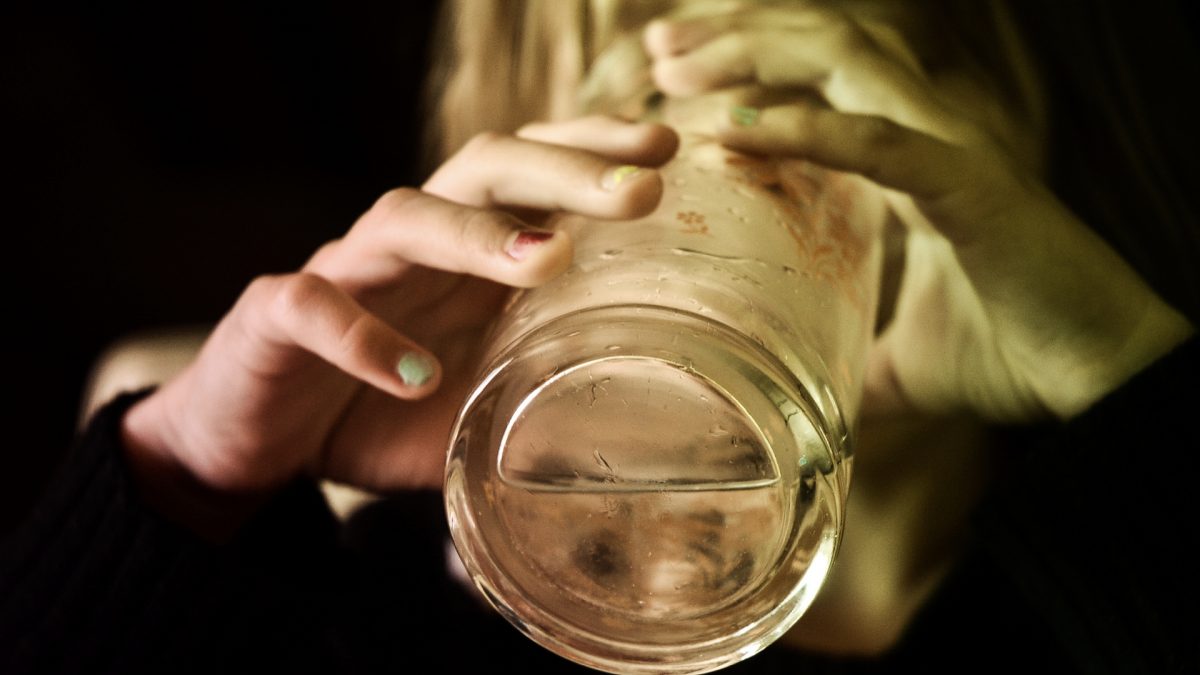
Lead in Drinking Water
What happened in Flint, Michigan, how was it discovered, and how many more Flints are...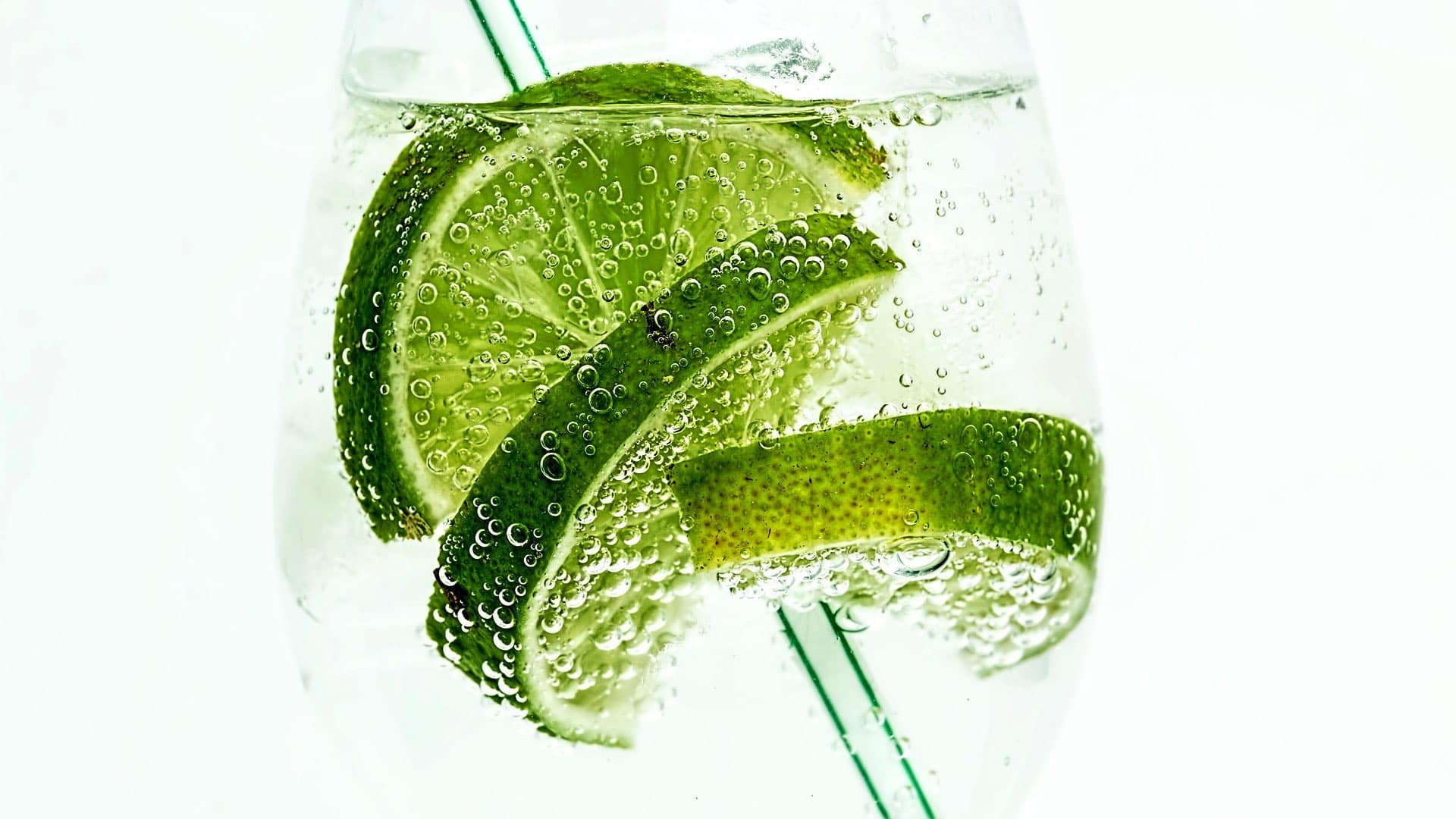
Club Soda for Stomach Pain and Constipation
Is carbonated water good or bad for heartburn, dyspepsia, and bowel regularity?
Treating Dry Eye Disease with Diet: Just Add Water?
Causes of dry eye disease include LASIK laser eye surgery, but there are dietary approaches...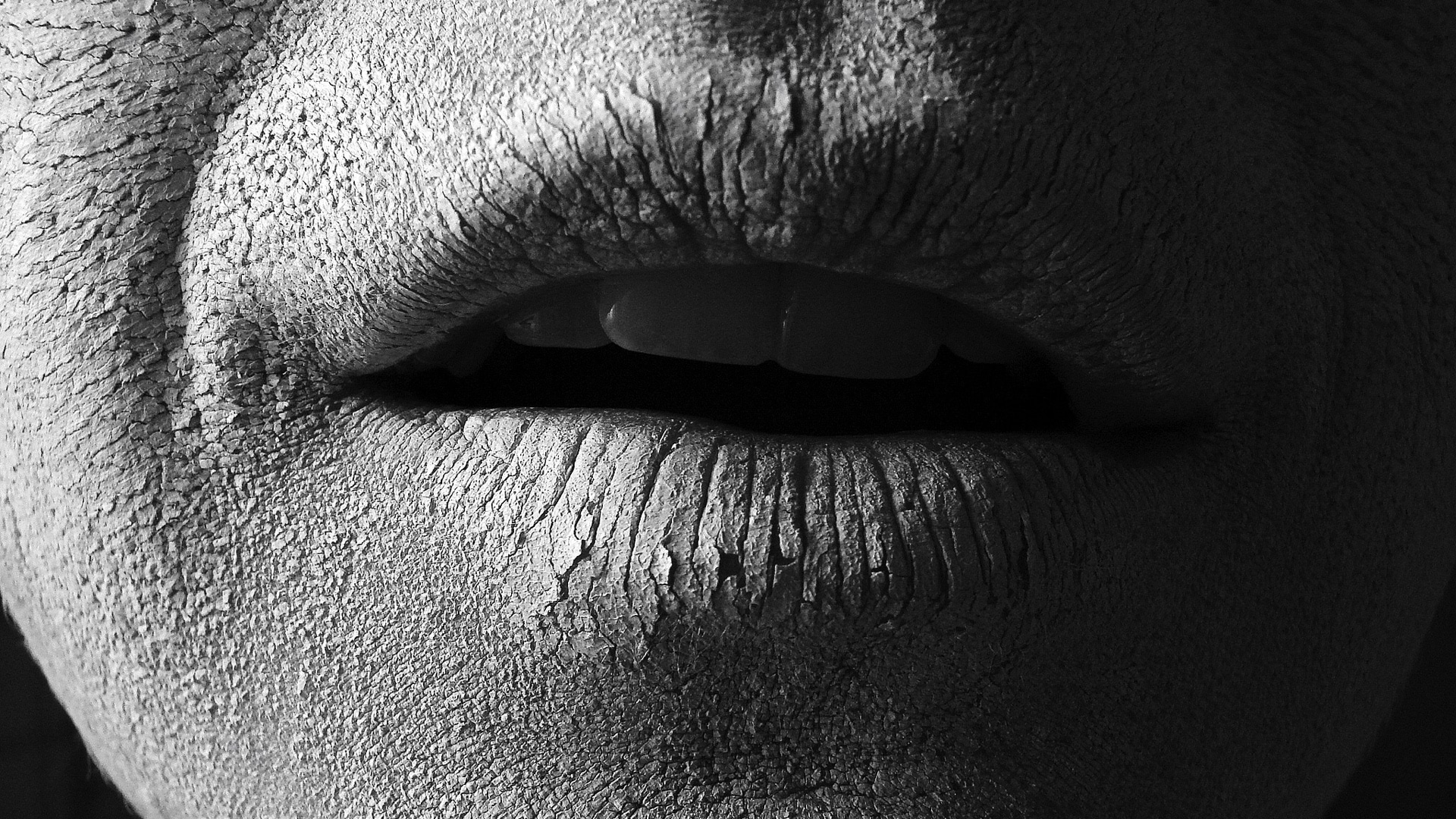
Can Dehydration Affect Our Mood?
The brain shrinkage associated with dehydration may not only play a role in cognitive impairment,...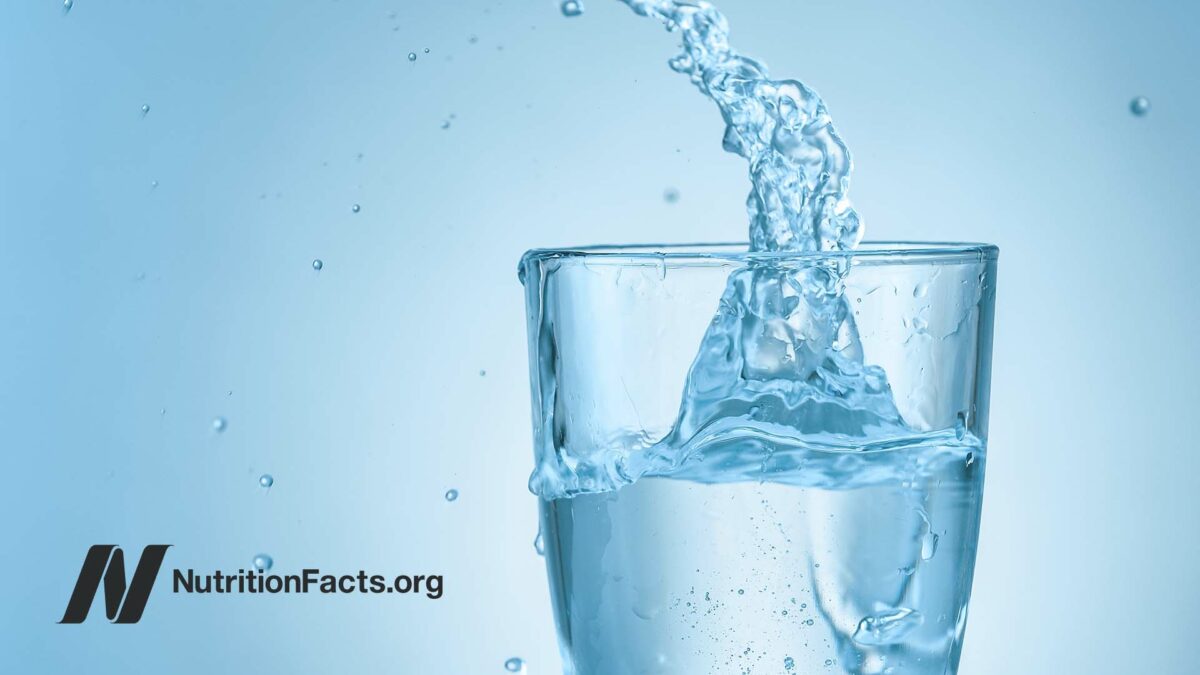
Does a Drink of Water Make Children Smarter?
Most children don't drink water from when they wake up to when they go off...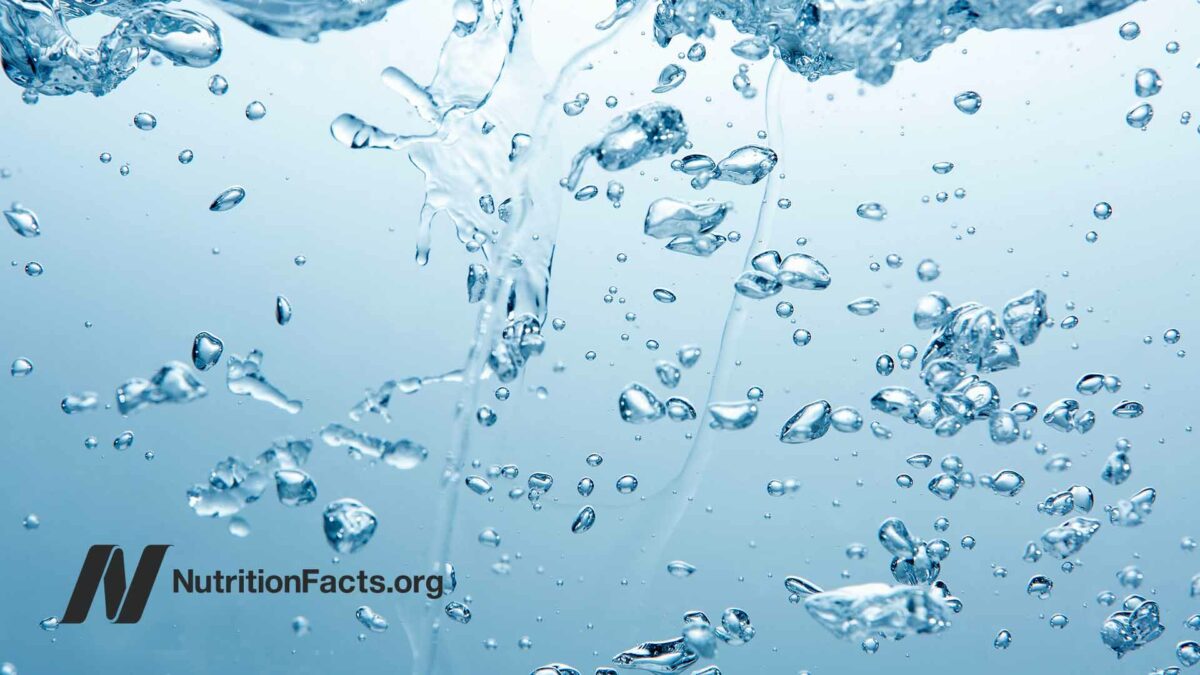
Alkaline Water: A Scam?
Hawkers of "ionizer" water machines (like Kangen) claim healing alkaline water benefits; skeptics call it...All Videos for Water
-

Cancer from Benzene from the Preservative Sodium Benzoate in Beverages?
Certain soft drinks and bottled (heated) carrot juice may contain carcinogenic levels above safety standards.
-

Natural Ozempic Alternatives: Boosting GLP-1 with Diet and Lifestyle
Certain spices and the quinine in tonic water can boost GLP-1, but at what cost?
-

The Risks and Benefits of Mild Trendelenburg Position to Reduce Body Fat
Other than a “space headache,” what might be the downsides of sleeping at a slight head-down tilt to accelerate fat loss?
-

How Much Water Should You Drink Every Day to Lose Weight?
When we get dehydrated, the shrinkage of our blood volume can lead to the release of angiotensin, which can lead to weight gain.
-

Does Drinking More Water Help You Lose Weight?
Those who stay hydrated tend to maintain a healthier body weight, but is it cause and effect?
-

Medicine’s Response to the Changing Science on Fluoride Safety
How did the medical and dental community react to U.S. regulators’ total 180 over water fluoridation, going from presumptively safe to presumptively dangerous?
-

Why I Changed My Mind on Water Fluoridation
Based on new research, the U.S. Department of Health and Human Services’ National Toxicology Program reached a draft conclusion that fluoride should be “presumed to be a cognitive neurodevelopmental hazard to humans.”
-

Is Water Fluoridation Safe?
There have been more than 50 studies showing an association between higher fluoride exposure and lower IQ, but is it cause-and-effect?
-

Side Effects of Water Fluoridation: Dental Fluorosis
According to the CDC, about a third of American children now have some form of cosmetic defects in their tooth enamel due to fluoride exposure, known as dental fluorosis.
-

Why Is There Fluoride in Water? Is It Effective?
Based on nearly 100 randomized controlled trials, fluoride toothpaste reduces dental cavity rates, but what about just adding fluoride to the water supply?
-

Is Soy Milk the Most Nutritious Non-Dairy Milk?
Soy milk is compared to dairy milk and other plant-based milks.
-

The Benefits of Gum Chewing for Halitosis (Bad Breath)
Are any gum flavors better than others?
-

Prunes: A Natural Remedy for Constipation
Prunes, figs, and exercise are put to the test as natural home remedies for constipation.
-

The Symptoms of Vitamin B12 Deficiency
B12 deficiency is known as “The Great Masquerader.”
-

Optimizing Water Intake to Lose Weight
Two cups of cold water on an empty stomach a few times a day for weight loss.
-

What Is the Safest Metabolism Booster?
Drink two cups of water and you can get a surge of the adrenal hormone noradrenaline in your bloodstream, as if you just smoked a few cigarettes or downed a few cups of coffee.
-

The Effect of Drinking Water on Adrenal Hormones
Drinking water can be such a safe, simple, effective way to prevent yourself from fainting.
-

How to Get the Weight Loss Benefits of Ephedra Without the Risks
The diving reflex shows that it’s possible to have selective adrenal hormone effects.
-

Fasting to Naturally Reverse High Blood Pressure
A whole food plant-based diet can be used to help lock in the benefits of fasting to kickstart the reversal of high blood pressure.
-

Trailer for How Not to Diet: Dr. Greger’s Guide to Weight Loss
17 ingredients to an ideal weight-loss diet and the 21 tweaks to accelerate the further loss of excess body fat.
-

Evidence-Based Weight Loss – Live Presentation
In this live presentation, Dr. Greger offers a sneak peek into his book How Not to Diet.
-

Is It Best to Drink Tap, Filtered, or Bottled Water?
Given the disinfection byproducts in tap water, Brita, PUR, ZeroWater, and refrigerator water filters are put to the test.
-

Which Is a Better Breakfast: Cereal or Oatmeal?
The remarkable impact of the structure of food beyond nutritional content or composition.
-

Is Ginger Beneficial in a Diabetic Diet?
Ground ginger and ginger tea are put to the test for blood sugar control.
-

Which Coffee Is Healthier: Light vs. Dark Roast?
Dark roast coffee is more effective than light roast coffee in reducing body weight.
-

Are There Benefits of Energy Drinks?
The effects of Red Bull and Monster brand energy drinks on artery function and athletic performance.
-

Are There Risks to Energy Drinks?
Red Bull and Rockstar brand energy drinks are put to the test.
-

Pros and Cons of a Macrobiotic Diet
What happens when you put diabetics on a diet composed of largely whole grains, vegetables, and beans?
-

Coconut Water and Depression
What is the science behind the marketing of foods for antidepressant effects?
-

Are Sports Drinks Safe and Effective?
Commercial influences may have corrupted the American College of Sports Medicine’s hydration guidelines.
-

Coconut Water for Athletic Performance vs. Sports Drinks
Coconut water is tested head-to-head against plain water and sports drinks in athletes.
-

Dr. Greger’s Daily Dozen Checklist
In my book How Not to Die, I center my recommendations around a Daily Dozen checklist of everything I try to fit into my daily routine.
-

Dr. Greger’s Daily Dozen Checklist
In my book How Not to Die, I center my recommendations around a Daily Dozen checklist of all the things I try to fit into my daily routine.
-

How Risky Is the Arsenic in Rice?
Getting rice down to the so-called safe water limit for arsenic would still allow for roughly 500 times greater cancer risk than is normally considered acceptable.
-

Arsenic in Rice Milk, Rice Krispies, & Brown Rice Syrup
I recommend people switch away from using rice milk.
-

Arsenic in Infant Rice Cereal
When it comes to rice and rice-based products, pediatric nutrition authorities have recommended that arsenic intake should be as low as possible.
-

How to Lower Lead Levels with Diet: Breakfast, Whole Grains, Milk, Tofu?
Getting food into your stomach within a few hours of lead exposure can suppress the absorption of lead by 90 percent or more—but which foods are particularly protective?
-

How the Leaded Gas Industry Got Away with It
How the lead industry got the best science money could buy.
-

Lead in Drinking Water
What happened in Flint, Michigan, how was it discovered, and how many more Flints are there?
-

The Effects of Avocados and Red Wine on Meal-Induced Inflammation
Whole plant sources of sugar and fat can ameliorate some of the postprandial (after-meal) inflammation caused by the consumption of refined carbohydrates and meat.
